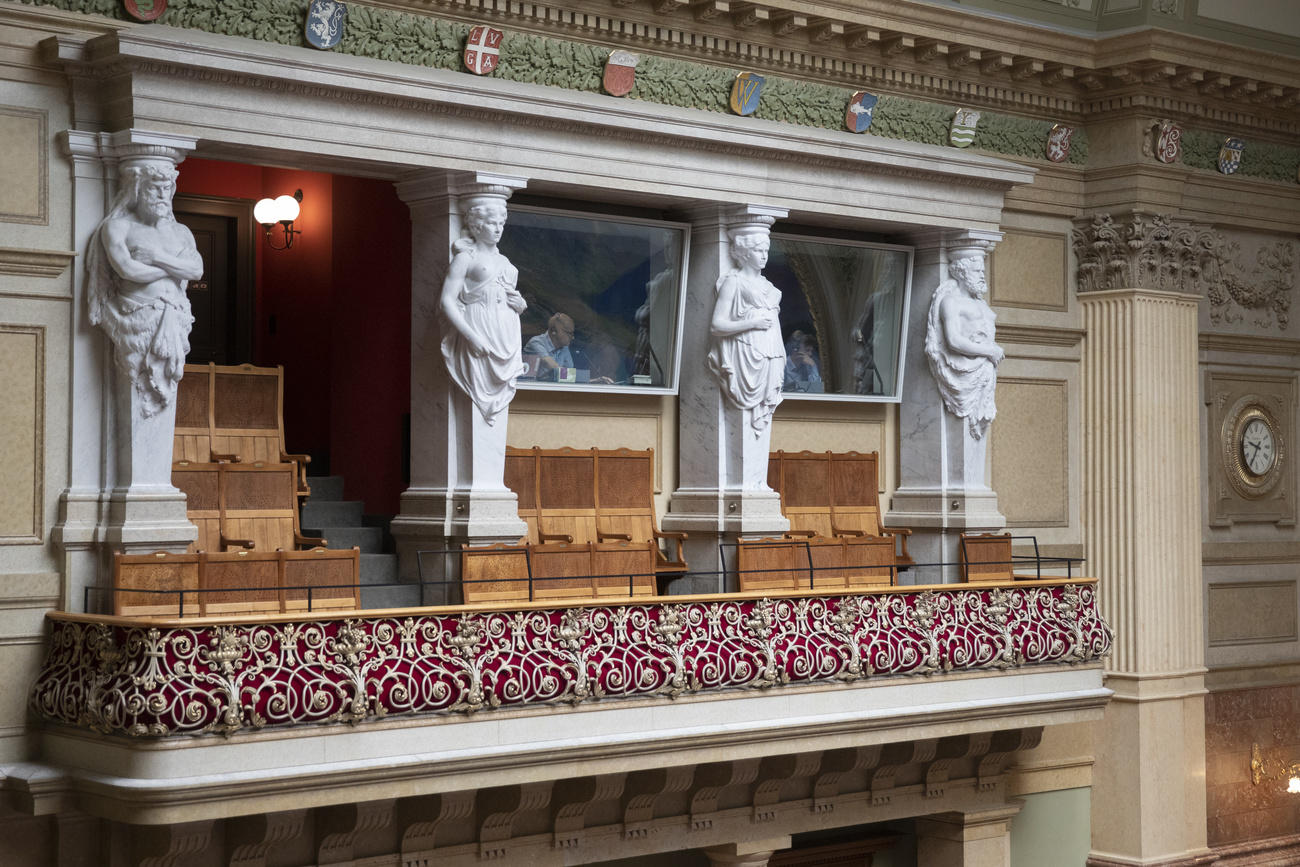
Lawmakers forbid use of Swiss German during parliamentary debates

Swiss lawmakers have decided that speeches should not be delivered in Swiss-German dialect during federal parliamentary debates.
Switzerland has four national languages: German (spoken by about 63% of the population), French (23%), Italian (8%) and Romansh (0.5%). Swiss German – a collection of local dialects – is spoken by people in the German-speaking part of the country. It is very different from High German (as spoken in Germany) – even mother-tongue Germans find it tough to understand.
+ How do the multilingual Swiss talk to each other?
Most parliamentarians (164 for and 20 against) in the House of Representatives decided on Tuesday that the variants of Swiss German should not become an official accepted language for debates.

More
The art of interpreting in Switzerland’s polyglot parliament
Lukas Reimann of the right-wing Swiss People’s Party had launched a parliamentary motion urging colleagues to save and value Swiss German, which he believes is a symbol of the identity and diversity of the Alpine country.
The dialect is experiencing a renaissance and is popular among young people and on social media, according to the Keystone-SDA news agency. In some cantonal parliaments, including in Aargau, Basel Country, Solothurn and Schwyz, local lawmakers are allowed to use both High German and Swiss German.

More
English as a common language in Switzerland: a positive or a problem?
But parliamentarians said the use of Swiss German at the federal parliament level in Bern would complicate understanding and exchanges between language regions.
To prove this point, Philip Bregy launched into a speech in the Swiss German dialect from the upper Valais region: “We wouldn’t be able to function. We need a common language. The French-speaking region has their local patois, but they speak in French.”
+ Languages generate one tenth of Swiss GDP
On top of legal and linguistic issues, the use of Swiss German as an official language in Bern would also create problems for simultaneous interpretation and for the written publication of speeches. Interpreters would have to master each dialect with their unique specific terms and usage.

In compliance with the JTI standards
More: SWI swissinfo.ch certified by the Journalism Trust Initiative



























You can find an overview of ongoing debates with our journalists here . Please join us!
If you want to start a conversation about a topic raised in this article or want to report factual errors, email us at english@swissinfo.ch.